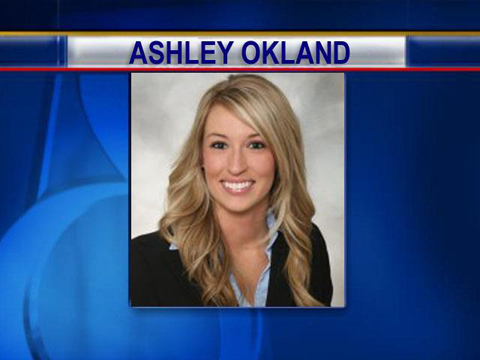The recent shooting of 27 year old Iowa real estate agent Ashley Okland by an unknown assailant is just the latest example of the serious dangers of being involved in this business.
Okland, who had arranged to show a client around a property in West Des Moines, Iowa, was found dead in the suburban model home last week. Her murder is just one of over a hundred killings in the real estate industry since the financial meltdown and resulting foreclosure mess began three years ago.

Ashley Okland, killed last week. Image courtesy of Erickae Courtney
The real estate industry is clearly becoming a very dangerous, violent place. According to numbers from the Bureau of Labor and Statistics, an average of 75 real estate professionals has been killed on the job each year since 2003. Many real estate agents have now resorted to carrying tasers, pepper spray and even guns with them when they go to meet potential clients.
“The danger is that agents go out meeting complete strangers in often isolated homes every single day,” says Tracey Hawkins of Safety and Security Force.
One possible reason for the growing violence is the huge number of foreclosures over the last three years. Many of these properties are distressed or abandoned homes, located in rough areas.

Crack house. Image courtesy of Minimanga
“Angry former homeowners, squatters and even dangerous animals are often encountered at these places,” explains Hawkins. “Many of these homes are meth houses occupied by crack addicts, junkies and criminals, meaning they can be very dangerous places to enter.”
In response, Hawkins has set up a program to increase safety for real estate agents, called the Real Estate Agent Safety for Distressed Properties. She has created a group on the LinkedIn social networking site, and more than 200 members have signed up to discuss what people involved in the industry can do to stay safer.
The biggest piece of advice Hawkins recommends is that agents should arrange to meet clients at the office first of all. “Anyone looking to commit a crime doesn’t want their face to be seen by others,” she explains.

Many agents now carry pepper spray for safety. Image courtesy of LoyalKNG
Agents should also make sure that someone else knows exactly where they are going, and when they can be expected back. They should also make a copy of the client’s ID before going to view the property.
“Above all, trust in your instincts,” advises Hawkins. “If you have a bad feeling about any particular situation you find yourself in, you have to listen to those alarms. Don’t ignore them because you are worried about upsetting the client”.
Lastly, she advises that agents shouldn’t be scared to call 911 should they feel threatened. As Hawkins puts it, “The cops would much prefer going to a false alarm than coming out to a gruesome murder scene.”